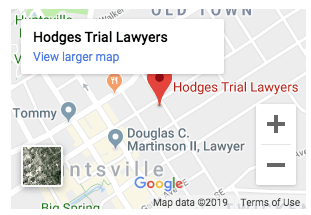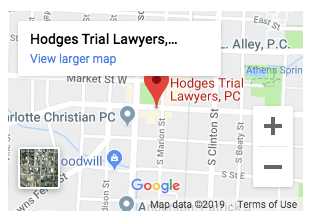When you start a personal injury claim, it’s important to get a general understanding of the timeline, what happens at each step, and what you should expect. Discovery is a crucial part of any personal injury claim, as it literally gives both sides the evidence they need to build their cases.
If you’re getting ready to start discovery and you’re not quite sure what your role is, learn more about what it entails and what it means for your case. Still looking for the right personal injury lawyer for your case? Call Hodges Trial Lawyers at 256-826-4129 to set up a consultation right now.
The Discovery Process Gets the Evidence You Need
Discovery is very important to your personal injury case. Before either side can make their case, they have to know what evidence is available and what each side has to say. Discovery gives both sides a chance to talk to the parties involved, look at relevant documents, and request the information they need. In general, discovery allows attorneys to look at any relevant documentation or communication, as long as it is not privileged information.
Types of Discovery Methods
There are many ways your attorney may get the information and evidence they need as they prepare for your personal injury case. Some of the main discovery methods include:
- Requests for admission: Each point your attorney has to prove takes time, effort, and resources. The same is true for the other side. If they can agree on key points, they no longer have to prove those points, which saves a significant amount of time.
Consider, for example, a dog bite claim. You claim that the dog was unleashed, but the owner is insistent that the dog was leashed and under their control until they bit you. Your attorney must spend time trying to prove that the dog was likely unleashed. If during a request for admission, the owner instead admits that the dog was not on a leash, that fact is admissible in court. Your attorney does not have to prove it further.
- Interrogatories: A written list of questions provides valuable insight, evidence, and additional resources for evidence. Interrogatories may include questions regarding each party’s identity, insurance coverage, injuries, what happened, and what was observed.
- Requests for documentation: Documentation is important in personal injury cases. It gives insight into the costs associated with the accident, the injuries caused by the accident, time away from work, and other aspects of your claim. Both sides can request documents from the other side and make copies to use for their case.
- Depositions: Depositions are a powerful tool for the discovery process. Oral depositions allow the attorney to verbally question the people involved in the claim. Depositions are either transcribed by a court reporter or recorded for future review.
Are There Limitations on Discovery?
Per Alabama law, a party does not need to provide discovery of certain electronic information that would put undue burden or cost on the party in question. The party requesting the information may try to get the information anyway by proving to the court that they have good cause for requesting it.
The court can also put limitations on discovery if it is unreasonably cumulative or duplicative, if there are other ways to get the information that are less burdensome or less expensive, or if the requested discovery is outside the scope of Alabama law.
How to Prepare
Your attorney should help you prepare thoroughly for the discovery process. Their experience in this type of law allows them to give you an estimated timeline, a breakdown of different discovery methods they’ll use, and information regarding your role. They should also help you prepare for depositions and anything else you may be involved in as an accident victim.
Contact Hodges Trial Lawyers—Start Your Case Now
With the right attorney by your side, you can go through the personal injury claim process feeling confident and calm. Let us help you fight for the fair compensation you deserve. Set up a time to talk with our team of personal injury attorneys by filling out our online contact form or calling us at 256-826-4129. We’re here to help you fight for justice.



